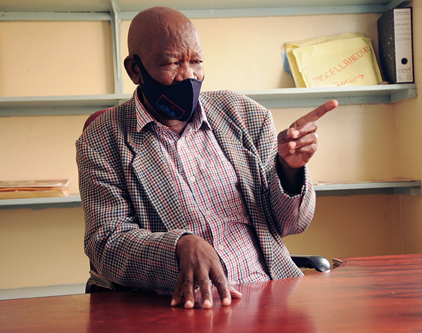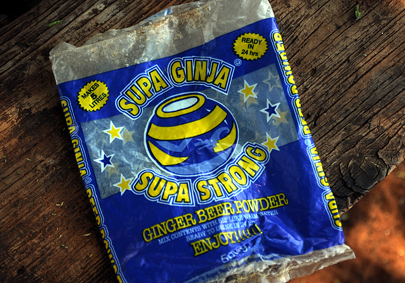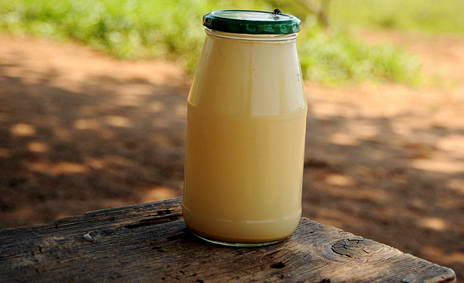Illicit brews Curse for Otse
11 Mar 2021
Often touted by their consumers for giving a quick and potent fix, illicit brews are a thorn in the flesh for authorities, an incessant nightmare that keeps law enforcers moving round in circles in efforts to stem their flow.
The concoctions, which are dearly loved by those who indulge in them, come in different forms and often carry catchy labels and names.
When the country was abuzz with ‘Modaefok,’ another of the sort in recent weeks, in Otse in the Mahalapye Sub-district, a similar monster was doing the rounds in the village.
With the village leadership grappling with different criminal acts such as stock theft, rape and murder as well as suicides, Kgosi Boithamako Keiponye was concerned about the consumption of alcohol, particularly illicit brews, which happened even when the alcohol ban was in place.
The illicit brews are a menace, said Kgosi Keiponye, adding that they contributed to incidences of crime in the village.
Majalwa a masesane ga a re robatse mo Otse. Go nale selo mo gatwe Ginger se re tshwarisitse bothata, mme le fa o ka re o a latedisa ga o kake wa bona motlhala wa sone,” he said, explaining how a brew named Ginger has been wreaking havoc in the village.
Talk of Ginger surfaced when the initial alcohol ban was announced and a restriction of movement was imposed.
Efforts by the village leadership to find Ginger and other illicit brews yielded nothing, but it was not uncommon to get reports of fights and use of vulgar language in the village, and in pursuit of those it would emerge that those involved had been intoxicated when the crimes were committed.
There was, however, never a time when the perpetrators and their victims could properly account as to the source of their intoxication, and in most cases they would deny having consumed anything intoxicating regardless of how much their disposition at the time betrayed them.
With the subsequent alcohol ban, Ginger reared its ugly head in a more pronounced manner since movement was now not restricted as previously.
“Go ne go nowa fela mo go tlhwaafetseng.
Fa re utlwa gatwe barekisi ba jone ba ne ba tswalela mo matlong ba bo ba ba beela emere gore ba tlhapologele mo teng. Wena o tlaa ne o bona motho fela a tswa ka emere a ya go tsholola o re o tsholola metsi,” Kgosi Keiponye said, as he explained how those who sold Ginger would keep their patrons in houses with a bucket for them to relief themselves in while they imbibed their drinks.
As a leader, he is sad that some Otse residents drank without inhibition despite the negative consequences that often came with excessive alcohol consumption, particularly with regard to illicit brews.
“Bojalwa bo tlhokisa bontsi jwa banwi ba jone mo motseng tlhaloganyo ya go ka itirela. Ke sone se o bonang bokete jwa bone ba tshela ka mophako,” he said, noting how some residents failed to eke a living for themselves as a result of being given over to excessive alcohol consumption.
Kgosi Keiponye was also worried about the health of his people as Ginger reportedly makes people ill.
He has heard stories of some losing control of their bowels after drinking Ginger and messing themselves, and it is such things that he said even took away the dignity of some grown-ups in his village.
The search for Ginger is not an easy one as most people to whom enquiries are directed deny any knowledge of such.
Some, however, concede to having heard of the existence of a brew of that name, but deny having seen or tasted it.
At one homestead, a man and three women are found enjoying some yellowish drink, the women sharing from a mayonnaise glass bottle while the man had a two-litre plastic jug at his feet.
Upon seeing visitors approaching, the man pushed his jar under the plastic chair he was sitting on.
The man remained mum throughout the exchange of pleasantries, and one woman after a request of a sip chipped in and explained with an “Ijoo, rona mma re inwela khadi.”
In unision, the three women denied ever hearing of any drink called Ginger in their entire lives. They maintained that Khadi was their go-to drink and sweared that it was Khadi they were drinking.
While the search continued, one resident acknowledged knowing about Ginger and stated how she had been, a short while back, with someone who was enjoying the brew.
She even offered to go and buy a glass of Ginger so the team could appreciate how the drink looked like.
Upon returning, the Ginger she brought resembled, in colour at least, the drink that the quartet met earlier were enjoying.
“Ginger is a reality in this village though they may try to deny that.
Some children are even not getting proper and adequate care in some homes because their parents are forever busy with Ginger,” she said.
She explained that there was a powder sold from wholesalers called ‘Ginja’ that some residents used as a key ingredient to the Ginger being drunk in Otse.
“They buy the Ginja powder and instead of following instructions on the packet by simply emptying the contents into a five-litre bucket of water and letting it brew for 24 hours, they add yeast to make the brew more potent,” she said.
The woman then offered to lead the team to the woman she was with moments earlier who was enjoying some Ginger, and shortly after meeting the lady, her brother joined in and on enquiry quickly admited that they did drink Ginger and liked it quite a lot.
“Ginger ke e ratela gore e bogadi bo gaufi, ga o tlhoke go nwa go le gontsi gore o tagiwe,” he said, extolling the potency of the drink.
He was sad though that the drink made them sick and explained how some vomited, got diarrhea, and some experienced nose bleeds while others developed sunken eyes.
“Dikomelo tsa Ginja di tla di tlhakanyeditswe ruri, jaanong mathata bangwe ba tsenya yeast ba re ba oketsa bogale. Ginger mma e setse e bile e kile ya bolaya motho mo Otse mo,” he elaborated, showing how the brew had once claimed a life in the village because of the habit of those who brewed it to raise its potency.
Despite all these, he vowed to continue drinking Ginger as it was more affordable compared with Khadi and other brews.
The man indicated he had himself fallen ill thrice due to Ginger.
“The last time I was ill from consuming Ginger was over the festive season. I was down when the New Year was being ushered in. I had diarrhea, a very bad headache, was experiencing some dizzy spells and I had no appetite,” he stated.
The sister pleaded to be offered a job and said though she liked drinking she would only do so after hours.
“Nna fa ke bone tironyana ke a bereka mme fa ke chaisa ke a nwa ke itsenya botlhale. Bojalwa ke bo ratela gore bo go neela tlhaloganyo fela e sele e e itseng dilo tsotlhe,” she wrapped up. ENDS
Source : BOPA
Author : Keonee Kealeboga
Location : OTSE
Event : Interview
Date : 11 Mar 2021








